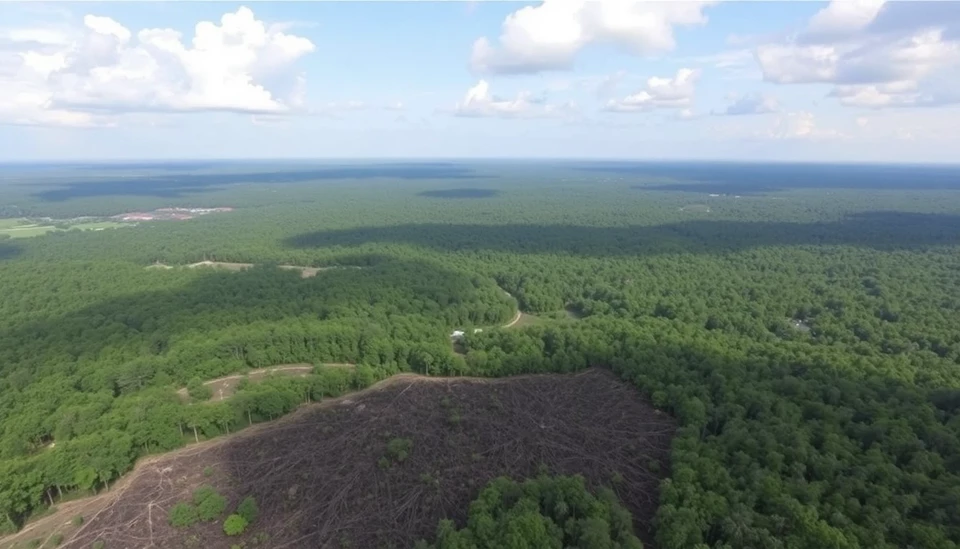
Recent findings have revealed that major banks are continuing to funnel billions of dollars into companies that are reportedly contributing to rainforest degradation and deforestation. This financial support poses a significant threat to one of the planet's most vital ecosystems, raising alarms among environmental advocates and stakeholders.
The banking sector’s extensive investment strategies are demonstrating a stark contradiction to the growing calls for sustainability. Recently compiled data showcases that a variety of financial institutions are backing clients heavily involved in palm oil production, cattle ranching, and logging—industries that are primary drivers of rainforest destruction, particularly in key regions like the Amazon and Southeast Asia.
Despite international initiatives urging for greener practices, research indicates that these financial injections show no signs of slowing. In fact, the amount invested in companies causing extensive harm to forests has increased over the past year according to environmental advocacy groups monitoring corporate financing.
Highlighting this troubling trend, the financial support comes at a time when deforestation rates are spiking due to demand for agricultural products and commodities. Investors seem to be ignoring scientifically backed warnings about the environmental impacts of their financing choices. Experts stress that the loss of rainforests is not merely an environmental issue but a socio-economic one that endangers indigenous communities and contributes significantly to climate change.
The financing arms of these banks often justify their investments by stating that they are working with clients to improve their sustainability efforts. However, environmentalists refer to this as “greenwashing,” and advocate for more substantial actions rather than merely surface-level engagement.
Several banks, including some of the world’s largest financial institutions, are facing scrutiny over the paradoxical nature of their operations—promoting climate agendas while simultaneously investing in ecologically damaging practices. The inconsistency has drawn sharp criticism from environmental groups and the general public, urging banks to adopt a stricter ethical framework in their investment portfolios.
Emerging from this situation is a call to action from climate activists. They are demanding an immediate reprioritization of bank investments, shifting towards sustainable enterprises that do not threaten natural habitats. Activists believe that greater public awareness and pressure can influence banks to redirect their funding, which in turn could help mitigate deforestation rates and their associated impacts on climate change.
With increased activism, there is hope that the financial sector will be held accountable for its role in environmental degradation. Ongoing campaigns aim to instigate changes in banking policies toward more ethical investment strategies that prioritize ecological preservation over short-term financial gains.
The intersection of finance and environmental stewardship remains a critical battleground as society grapples with the consequences of unchecked corporate responsibility and investment strategies. The coming years will be paramount in determining whether these institutions choose to uphold their sustainability promises or maintain a course that continues to threaten vital ecosystems.
As this situation evolves, it will be crucial for stakeholders at all levels—governments, businesses, and consumers—to advocate for a more sustainable and ethical approach to finance. The push for responsible investment practices could ultimately help protect the future of the world's rainforests and combat climate change effectively.
#Banks #Deforestation #ClimateChange #RainforestProtection #Sustainability #EnvironmentalActivism #Greenwashing
Author: Peter Collins




